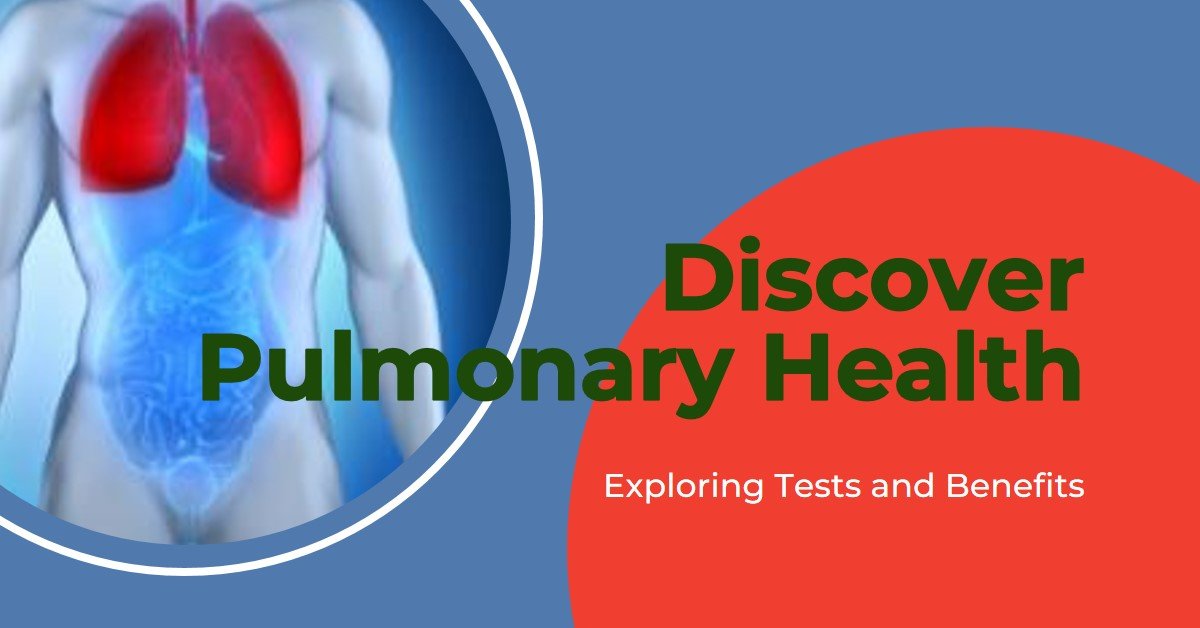Pulmonary Function Tests (PFTs) are crucial diagnostic tools that measure how well your lungs function. These tests assess lung volume, capacity, rates of flow, and gas exchange, providing valuable insights into your respiratory health. Whether you’re experiencing breathing difficulties or monitoring a chronic condition, PFTs can guide effective diagnosis and treatment.
This comprehensive guide explores everything you need to know about PFTs, including their types, benefits, preparation tips, and frequently asked questions.
What Are Pulmonary Function Tests (PFTs)?
Pulmonary Function Tests are non-invasive tests that evaluate the efficiency of your lungs. They are often recommended for individuals experiencing respiratory symptoms such as:
- Shortness of breath
- Chronic cough
- Wheezing
- Reduced exercise tolerance
PFTs are also routinely used to monitor chronic conditions like asthma, chronic obstructive pulmonary disease (COPD), and interstitial lung diseases.
Why Are Pulmonary Function Tests Important?
PFTs play a vital role in:
- Early Detection: Identifying respiratory diseases at an early stage.
- Diagnosis: Differentiating between obstructive and restrictive lung diseases.
- Treatment Monitoring: Evaluating how well treatments like inhalers or medications are working.
- Pre-Surgical Assessment: Ensuring safe surgical outcomes by understanding lung function.
According to the American Thoracic Society, PFTs are essential for improving patient outcomes by guiding personalized treatments.
Types of Pulmonary Function Tests
1. Spirometry
Spirometry measures how much air you can inhale and exhale, and how quickly.
- Purpose: Diagnoses asthma, COPD, and other conditions affecting airflow.
- How It Works: You breathe into a device called a spirometer.
2. Lung Volume Testing
This test measures the total capacity of your lungs.
- Purpose: Diagnoses restrictive lung diseases such as pulmonary fibrosis.
- Method: Performed using body plethysmography, a sealed chamber.
3. Diffusion Capacity Test (DLCO)
This test evaluates how effectively oxygen moves from your lungs to your bloodstream.
- Purpose: Detects issues like emphysema or pulmonary hypertension.
- Procedure: Involves inhaling a harmless gas mixture and measuring its exhalation.
4. Peak Flow Measurement
A simple test to measure the force of air expelled from the lungs.
- Purpose: Useful for daily asthma monitoring.
- Device Used: Peak flow meter.
5. Exercise Stress Test
Assesses lung function during physical activity.
- Purpose: Diagnoses exercise-induced asthma or other activity-related respiratory issues.
Preparing for a Pulmonary Function Test
Proper preparation ensures accurate results. Here’s how to get ready:
- Avoid Smoking: Refrain from smoking at least 24 hours before the test.
- Pause Medications: Consult your doctor about halting respiratory medications temporarily.
- Eat Lightly: Avoid heavy meals before the test to prevent discomfort.
- Wear Comfortable Clothing: Allow for easy breathing during the test.
What to Expect During the Procedure
PFTs are generally straightforward and painless.
- Spirometry: You’ll sit and breathe into a mouthpiece connected to a machine. The technician may ask you to inhale deeply or exhale forcefully.
- Lung Volume Test: You may sit in a sealed chamber while breathing through a mouthpiece.
- Diffusion Test: Involves inhaling a small amount of gas and holding your breath briefly.
The entire process typically takes 30 to 60 minutes.
Are Pulmonary Function Tests Safe?
Yes, PFTs are safe for most people. However, individuals with certain conditions should consult their doctor beforehand, such as:
- Recent heart attack or stroke
- Severe shortness of breath
- Chest pain
Side effects are rare but may include dizziness or light-headedness during the test.
Interpreting Pulmonary Function Test Results
PFT results are compared to average values based on your age, gender, height, and ethnicity. Key metrics include:
- FEV1 (Forced Expiratory Volume): Measures how much air you can exhale in one second.
- FVC (Forced Vital Capacity): Total air exhaled during a spirometry test.
- FEV1/FVC Ratio: Helps diagnose obstructive or restrictive lung diseases.
Your healthcare provider will explain the results and discuss any abnormalities.
How Ecotown Diagnostics Can Help
If you’re seeking Pulmonary Function Tests near Bangalore, Ecotown Diagnostics offers advanced testing facilities with expert care. Our team ensures accurate results and personalized guidance for your respiratory health.
FAQs About Pulmonary Function Tests
1. Can children undergo PFTs?
Yes, children as young as 5-6 years old can perform basic PFTs like spirometry with guidance.
2. How long does a PFT take?
Most PFTs are completed within 30 to 60 minutes.
3. Do I need a prescription for a PFT?
Yes, a doctor’s referral is usually required to undergo PFTs.
4. Is fasting required before the test?
Fasting isn’t necessary, but heavy meals should be avoided.
5. Can I do PFTs if I have a cold?
It’s best to reschedule the test if you have an active respiratory infection for accurate results.
Conclusion
Pulmonary Function Tests are invaluable tools for understanding and managing your lung health. Whether you’re experiencing symptoms or monitoring a chronic condition, timely testing can make a significant difference in diagnosis and treatment. If you’re near Bangalore, consider scheduling your PFTs with Ecotown Diagnostics for reliable and patient-centric care.
Have you had your lungs tested recently?
Also know NCV Test in Bangalore | Advanced Diagnostics for Nerve Health
